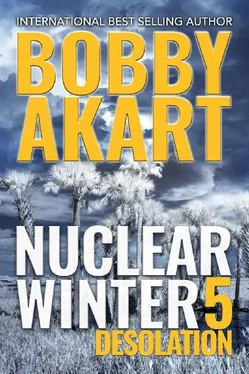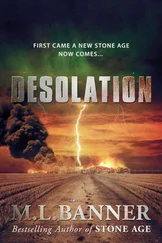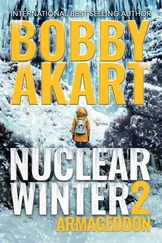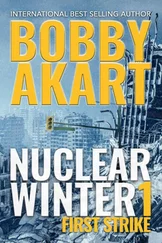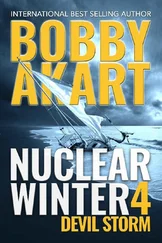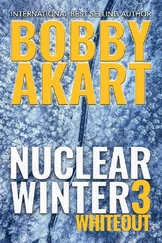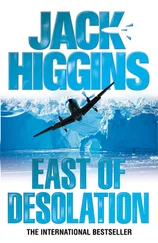It certainly didn’t help his already surly attitude for the sheriff to dress him down the night before because of the continued loss of life during the raids. He tried to convince the sheriff that he didn’t like his deputies being attacked and shot at either. However, since the beginning of the confiscation raids, word spread rapidly throughout the Lower Keys, and opposition was growing.
During their heated argument at the warehouse the evening before, Sergeant Rivera made the mistake of questioning the operation altogether. To make matters worse, he complained that Mayor Lindsey should have laid some groundwork prior to the raids so that the people knew their operation was designed to help them.
The sheriff hurled all kinds of vulgarities and threats at Sergeant Rivera. The tongue-lashing was the worst he’d ever witnessed, much less received. After he left the sheriff’s office to get a few hours of sleep, he wondered who was under more pressure. The sheriff or him.
The convoy got a slow start leaving Big Pine Key that morning. One of the Penske trucks stalled barely a quarter mile over the water on the way to West Summerland Key. It took a dozen men and the front bumper of another truck to move the twenty-six-footer out of the way before they could proceed.
Then on the next island, Bahia Honda Key, the sand that had washed ashore from the hurricane slowed their convoy as it became difficult for the box trucks to discern where the road ended and the soft, sandy shoulder began. One of the trucks dropped its right-side wheels into the sand and became stuck. Sergeant Rivera could ill afford to lose another box truck, as there were no other rental locations until they reached Islamorada, and he had not yet sent an advance team in that direction to determine if the trucks could be seized.
After another lengthy delay to free the truck from the soft sand, the convoy of tactical vehicles, patrol cars, and box trucks was under way. They rumbled along past the Sunshine Key RV Resort, drawing dozens of people out of their motor homes and trailers to view the spectacle.
Interestingly, unlike what they’d experienced the last several days, this group stood on the sidewalk between the chain-link fence and the highway, cheering them on. It was as if they were being treated to a parade. Sergeant Rivera’s spirits lifted when one of the armored tactical vehicles sounded their siren, causing the onlookers to jump up and down while exchanging high fives.
Feeling better, he radioed the sheriff’s department dispatch to advise them that his convoy had entered Seven Mile Bridge at Little Duck Key. He expected to arrive in Marathon in ten minutes.
He was wrong.
Throughout yesterday and today as they’d traveled up U.S. 1, they rarely met any kind of operating vehicles. Stalled vehicles were everywhere, but most had been pulled to the side of the road. When he first began to encounter the abandoned cars and trucks on Seven Mile Bridge, he wasn’t all that surprised.
Just like a traveler on a long stretch of interstate between exits, motorists often miscalculate the amount of fuel left in their vehicle and run out of gas. People don’t intend to run out of gas. It just happens when they push their luck. Sergeant Rivera believed every driver pushed their luck in the apocalypse.
They slowed their pace so all of the convoy could stay together in case of a breakdown. Backing up and turning around wasn’t an option on the two-lane bridge cluttered with broken-down vehicles.
Riding in the lead vehicle, he ordered his driver to slowly wind through the debris field of inoperable vehicles. His focus remained on each car in their path rather than what lay ahead. That was why it came as a shock to him when the convoy was forced to come to a complete stop halfway across the bridge.
“What the hell is this?” he asked of no one in particular. There were four deputies in the tactical vehicle with him, but none of them had an answer other than stating the obvious—a traffic jam.
Sergeant Rivera bounded out of the truck and held his right fist in the air, indicating all vehicles should stop. The three deputies in the back seat piled out, and the driver remained in his seat as he’d been instructed. Rivera turned to the second tactical vehicle and used hand signals to those members of the SWAT team to disembark. These two lead trucks had remained with him throughout the raids. They were his best people—team A.
He glanced in all directions, pausing briefly at the sight of Fred the Tree, which he’d never given a second thought to when he’d passed it before the collapse. He thought for a moment and issued his orders.
“You three, make your way up the highway and see how far this goes. Do you see these skid marks? Somebody went through a lot of effort to block this highway. I wanna know how far it stretches. Go!”
The men immediately took off in a steady jog, looking for gaps between the parked vehicles and maintaining their weapons at low ready in the event of an ambush. When they were out of sight, Sergeant Rivera retrieved field glasses out of his vehicle and climbed onto the hood.
After getting his balance, he focused on the men as they made their way up the road. Then he adjusted his vision and looked toward Marathon. He shook his head in disbelief. He pulled the binoculars away from his face and rubbed his eyes. He looked again and dropped several F-bombs.
“I don’t need to wait for those guys to return. Get me the sheriff on the radio!”
“Yes, sir!” his driver shouted back.
It took several minutes for Sheriff Jock to respond to the radio call. By the time Sergeant Rivera had explained what he’d observed, the three members of team A had already returned. Their chests were heaving for air after jogging in the dense, sooty air. Sergeant Rivera asked the sheriff to stand by while he got the report from his men.
He retook his seat in the tactical vehicle and closed the door behind him. Then he instructed his driver to get out. After taking a deep breath to steady his nerves, he reached out to Sheriff Jock again.
“Sheriff, these cars are blocking the road all the way to Marathon. My men tell me there are hundreds of vehicles parked bumper to bumper, sideways across the road. It’s impossible for us to pass.”
“Who the hell did this?” the sheriff screamed through the radio.
“Sir, as my men reached the other end of the bridge, several people met them part of the way. The guy in front said his name was Hank Albright. I think he’s the owner—”
“I know who he is!” the sheriff screamed, cutting off his sergeant.
Sergeant Rivera tried to ask the sheriff what he should do, but the communication had been terminated. He angrily threw the microphone against the dashboard and slammed the back of his head against the seat out of frustration. This isn’t worth the aggravation , he thought to himself.
Friday, November 15
Seven Mile Bridge
After the confrontation with the three members of the sheriff’s SWAT team, Hank was filled with anxiety. He began to question whether they were doing the right thing by confronting the deputies. They were dressed in full body armor and helmets. They carried automatic weapons compared to the variety of guns available to the Albrights.
Hank was about to broach the subject of abandoning this whole crazy notion of staring down Lindsey’s standing army of sheriff’s deputies when he heard a voice in the distance. He turned to see who it was.
A half mile back, Lacey and Tucker were racing between the cars, waving their arms.
“Dad! Dad! We’re here!”
“We’re coming, Grandpa! Wait for us!”
Hank and Erin turned around. Mike and Jessica, who were walking alongside them, paused as well but kept their attention forward toward the looming standoff. Peter rushed back to greet his sister and nephew. They half-hugged and slapped each other on the back as the two of them continued toward Hank.
Читать дальше
